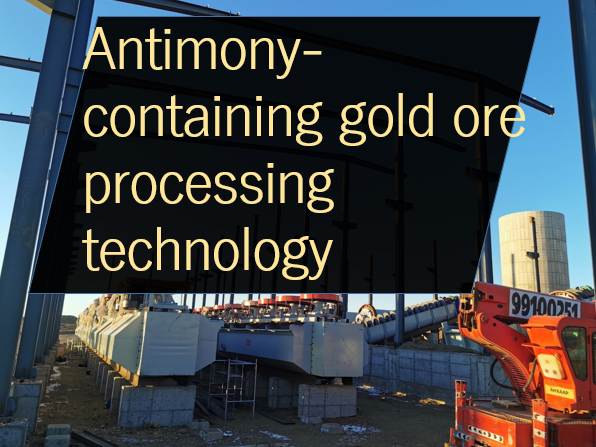Antimony-containing gold ore processing technology
2024-11-05 Xinhai (1696)
2024-11-05 Xinhai (1696)
If you have any questions, please contact us through the following ways, we will give you more and better assistance!

Antimony-containing refractory gold ore, also known as low-antimony gold ore, is characterized by the presence of antimony mainly in the form of sulfides, accompanied by sulfides such as pyrite and arsenopyrite, which tightly wrap gold. Due to the low antimony content and poor economic benefits, the industry usually adopts the process of "wet antimony removal-pretreatment-cyanide gold extraction" to extract gold.
First, antimony is removed by wet treatment, and then pretreatment methods such as roasting oxidation, pressure oxidation or biological oxidation are used to oxidize and decompose the sulfide to release the wrapped gold, and finally the gold is extracted by cyanide leaching.
Roasting oxidation is a traditional pretreatment technology that roasts gold ore in a boiling furnace to convert sulfides into porous roasted sand, release gold, and increase the cyanide leaching rate of gold, which can usually reach 75-92%, and the gold content of the tailings is controlled at 2.0-20.0 g/t. This method is simple to operate, has a high extraction rate, and is mature in technology.

The pressure oxidation method is carried out under alkaline conditions. It oxidizes sulfur, arsenic and other elements at high temperature and high pressure to expose gold, increase the cyanide leaching rate to 95-97%, and control the gold content of tailings at 1.5-2.0 g/t. Compared with roasting oxidation, the oxides produced by pressure oxidation have a weaker secondary coating effect on gold, and the exposure ratio of gold is higher, so the leaching rate is higher.
The biological oxidation method uses microorganisms to oxidize and dissolve sulfides to release gold. This method has been successfully applied worldwide since the 1980s, with a gold leaching rate of 95-97% and a gold content of 2.0-5.0 g/t in the tailings. Compared with roasting oxidation, biological oxidation does not need to treat sulfur dioxide flue gas and has less environmental pollution.
In summary, the gold extraction processes for antimony-containing refractory gold ores are diverse and have their own advantages. The appropriate pretreatment method can be selected according to the specific situation.